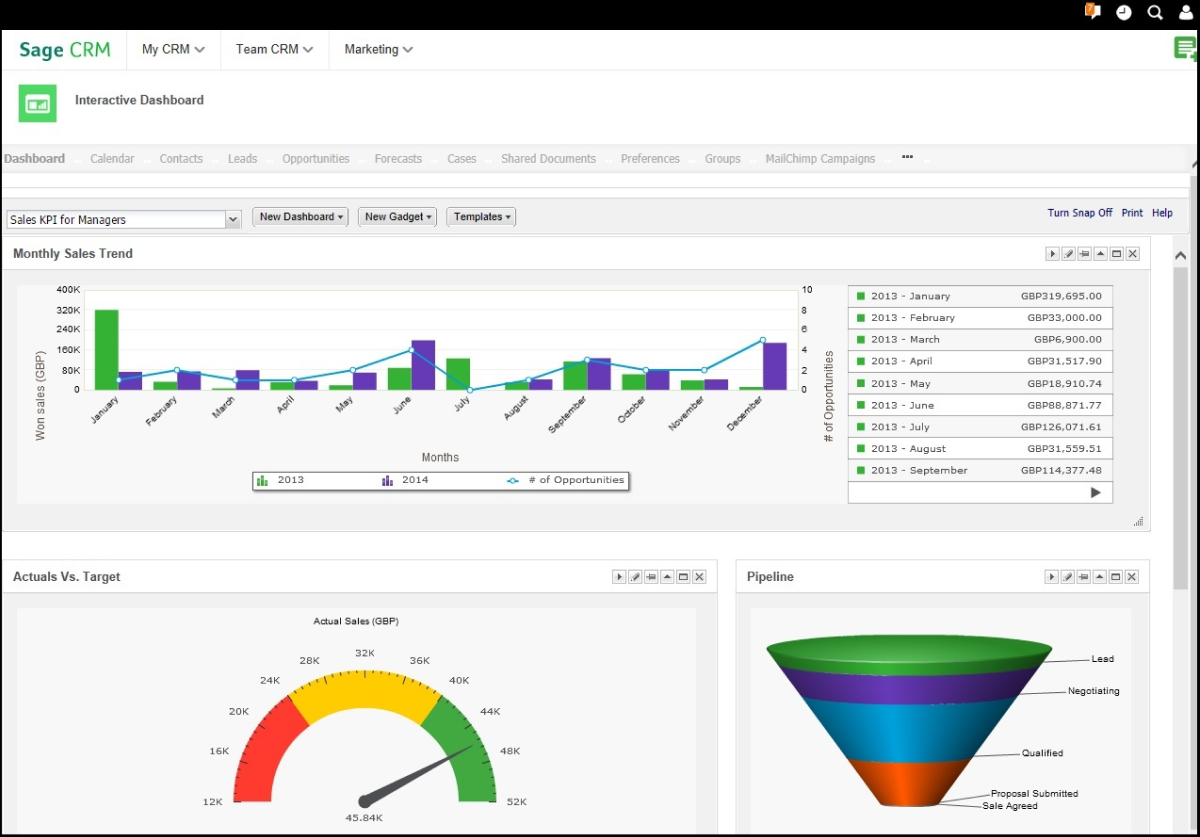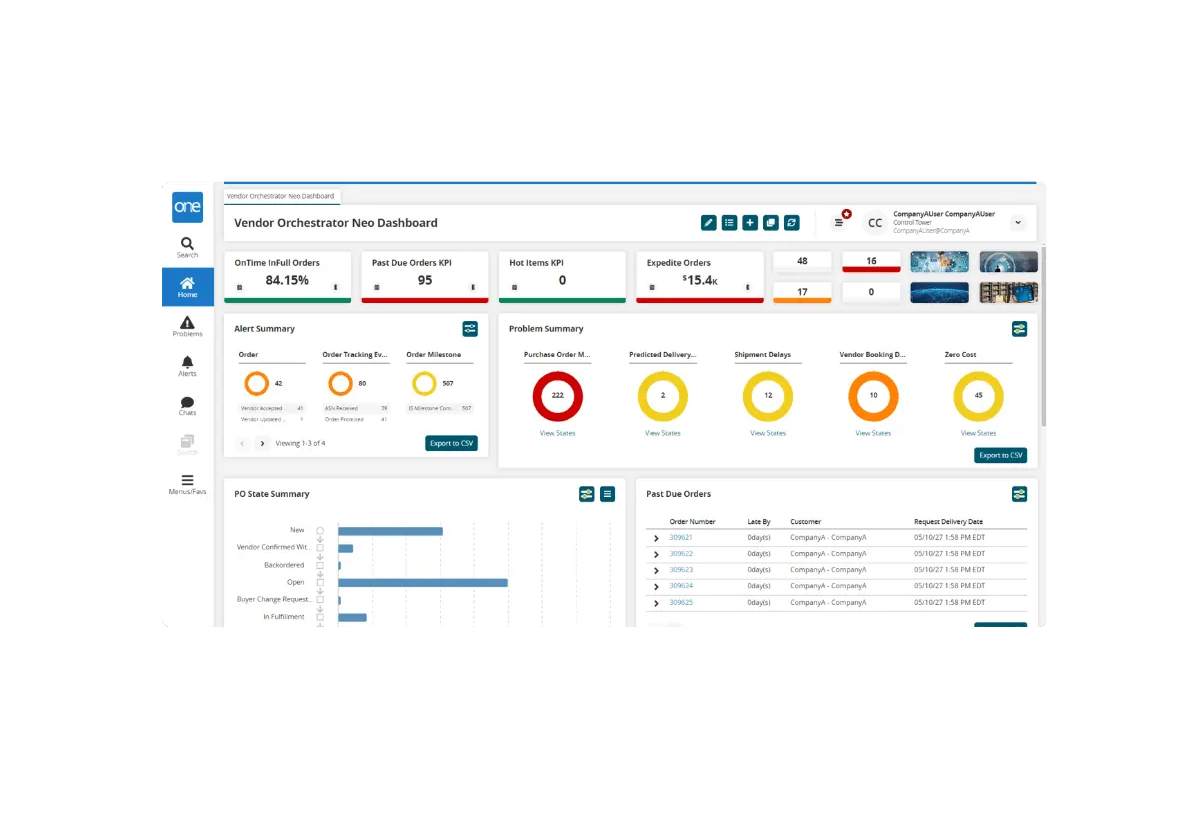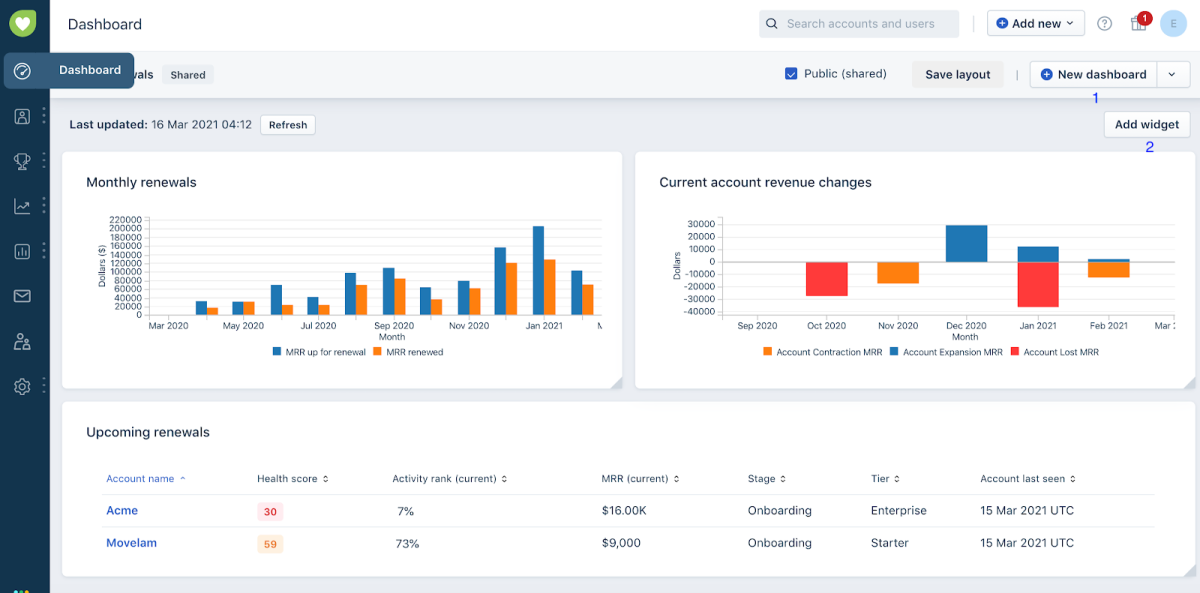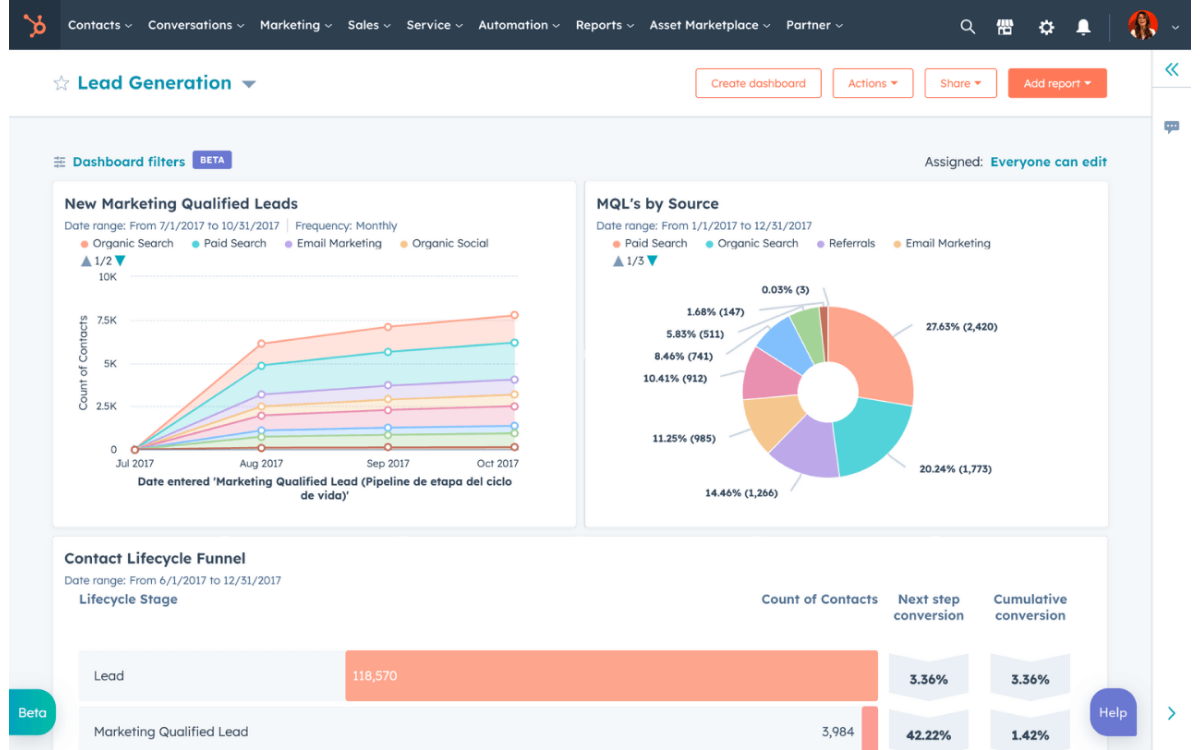In the age of flourishing businesses, customer expectations are higher than ever.
96% of customers say customer experience is important in their choice of loyalty to a brand.
Now, that’s a huge figure!
The logistics industry is rapidly evolving, with technology crucial in driving innovation. Are you struggling with inefficient routes, delayed deliveries, or communication breakdowns in your logistics operations? These challenges can impact your bottom line and damage your reputation.
A Logistics CRM offers the solution to overcome these hurdles and optimize your logistics process. From AI-powered route optimization to real-time tracking and automation, Logistics CRMs are transforming how businesses operate.
In this updated list for 2024, I’ll unveil the 6 best CRMs for taking your logistics business to the next level.
Let’s get started!
| CRM for Logistics Industry | Best For | Pricing |
|---|---|---|
| BIGContacts | Contact Management & Email Marketing | Forever free for small teams. Paid plan starts at $9.99/month |
| Sage CRM | Sales Pipeline Management | Custom pricing. |
| BlueYonder | AI-Powered Supply Chain Optimization | Custom pricing. |
| Freshsales | Deal Management | Starts at $10.7/user/month. |
| Hubspot | Centralizing Sales, Marketing, & Support Operations | Starts at $20/user/month. |
| Zoho | Omnichannel Engagement | Starts at $15.4/user/month. |
Spotlight on the Top 3 CRM for Logistics Industry: A Quick Overview
Looking for the best CRM to simplify your logistics operations? Here are 3 top contenders to consider:
BIGContacts:
Ideal for startups and small businesses in the logistics industry, BIGContacts stands out when it comes to contact management and email marketing. You can efficiently organize your contacts (customers, suppliers, partners), segment them for targeted campaigns, and nurture relationships through automated email sequences.
BlueYonder:
If you’re looking for a CRM that leverages the power of AI to optimize your supply chain, BlueYonder is a compelling choice. Its sophisticated algorithms can help you forecast demand, improve warehouse efficiency, and optimize delivery routes. While BlueYonder offers powerful solutions, keep in mind that implementing its advanced features may require a significant investment of time and resources.
HubSpot:
A popular choice across various industries, HubSpot excels at centralizing your sales, marketing, and customer support operations. You can manage your entire customer journey from a single platform, track interactions, and automate workflows. While HubSpot offers a free version, accessing its more advanced features, which might be essential for complex logistics needs, requires upgrading to a paid plan.
List of 6 Best Logistics CRM
To compile this list, I have assessed each tool’s ease of use and scalability, ensuring they meet the diverse needs of consultants. My evaluation includes my experiences, insights from reputable reviews, and feedback from industry peers.
1. BIGContacts – Best for Contact Management & Email Marketing for Startups & SMBs
As someone who has used BIGContacts in the logistics industry, I can confidently say it’s a valuable tool. It helped me manage contacts effortlessly and automate email marketing campaigns, making customer outreach a breeze.
I loved how the platform allowed me to keep all my customer information in one place, track my interactions, and even send personalized emails. I could also set reminders for follow-ups, track deals in the sales pipeline, and manage my appointments.
I found it especially helpful for tracking shipments, managing delivery schedules, and keeping everyone in the loop with automated email updates. It’s a logistics CRM that truly simplifies communication and helps you stay on top of everything.
What You’ll Like:
- Contact profiles that include essential details like phone numbers, email addresses, locations, and job titles, giving you a complete 360° view of each contact
- Automated email marketing to create targeted email campaigns and keep the customers informed
- User-friendly sales pipeline management that simplifies the tracking of sales and leads to monitoring progress efficiently and closing deals faster
- Task Management features to stay on top of deadlines and deliveries
- Awesome human support 24/7 via phone, chat, and knowledge base
- The interface is user-friendly and helps in navigating easily
What You May Not Like:
- No downloadable or on-premise version
- No dedicated account manager for the free plan, unlike the paid
Pricing:
Forever free for small teams. Paid starts at $9.99/month.
2. Sage CRM – Best for Sales Pipeline Management

Image Source: Greytrix
I implemented Sage CRM, which truly transformed how I managed our operations. The ability to track every client interaction, from the initial quote to the final delivery, was invaluable. I could monitor shipments in real time, manage customer inquiries efficiently, and even automate critical tasks like sending delivery updates.
I found Sage CRM to be a highly efficient tool for managing sales pipelines, especially regarding monitoring leads and closing deals. Sage CRM is handy for the logistics industry, where keeping track of clients, shipments, and vendors is essential.
As a CRM for transportation, it helped me optimize routes, manage the fleet, and track key performance indicators like on-time delivery rates. Having all this information centralized in one platform made decision-making easier and improved our overall efficiency.
What You’ll Like:
- Sales force automation for automated lead assignments and follow-ups to ensure you never miss an opportunity
- Marketing Campaign Management to send targeted emails to nurture leads and build stronger customer relationships
- Comprehensive sales tracking to provide real-time visibility into the pipeline to identify opportunities and close deals faster
- Integration with accounting systems that offer automated invoice creation, payment processing, and reconciliation, saving time and ensuring accuracy
What You May Not Like:
- Some users found the customization options to be somewhat limited, especially for complex workflows
- The user interface felt outdated compared to modern CRMs
Pricing:
Custom pricing.
3. BlueYonder – Best for AI-Powered Supply Chain Optimization

Image Source: Blue Yonder
When I first implemented BlueYonder, I was impressed by its ability to analyze massive amounts of data and provide actionable insights. It offered predictive analytics, helping me anticipate disruptions and optimize routes and schedules.
What really stood out was its usefulness as a CRM for the trucking business. Instead of reacting to delays and stockouts, I proactively adjusted routes to avoid weather events, optimized inventory levels based on predicted demand spikes, and even identified potential supplier issues weeks in advance.
BlueYonder’s control tower view gave me a granular, real-time insight into every shipment, warehouse, and transportation leg. For logistics, it was great for managing inventory, improving demand forecasting, and streamlining warehouse operations, all while maintaining seamless communication with vendors and clients.
What You’ll Like:
- AI-driven predictive analytics to enhance forecasting by anticipating supply chain disruptions and enabling more proactive decision-making
- Transportation Management feature to plan and optimize routes, manage carriers, and track shipments in real-time
- Customizable dashboards for users to tailor views and metrics according to their specific operational needs
- Seamless vendor integration for smoother communication and collaboration, helping to streamline the entire supply chain process from procurement to delivery
What You May Not Like:
- Occasional data integration challenges with other systems, which can complicate the implementation process
- BlueYonder is a premium solution with a high price tag, making it less accessible to smaller businesses
Pricing:
Custom pricing.
4. Freshsales – Best for Deal Management

Image Source: Freshworks
Freshsales surprised me with its ability to make deal management a smooth, almost effortless process. It wasn’t just another CRM—it felt like having an extra team member focused on moving deals forward.
Freshsales offered me detailed insights into every stage of the sales pipeline, which made it easy to prioritize tasks and close deals faster. I especially loved the AI-powered lead scoring, which identified the best prospects effortlessly.
For the logistics industry, where managing multiple contacts, shipments, and sales can get complex, Freshsales was truly helpful. Its Transportation CRM capabilities helped to track shipments and manage customer interactions seamlessly. Automated workflows helped me reduce manual tasks, which is vital in logistics, where timing and accuracy are critical.
What You’ll Like:
- Visual Sales Pipeline to easily track deals and identify bottlenecks in the sales process
- AI-driven leads scoring to highlight top leads to help close deals faster
- Integrated phone and email tracking ensures all communications are in one place, making follow-ups faster
- Workflow automation to automate repetitive tasks and free up your team’s time to focus on selling
What You May Not Like:
- Initial setup requires time, especially for customizing to specific needs
- Some users have experienced occasional slowdowns or performance issues
Pricing:
Starts at $10.7/user/month.
5. Hubspot – Centralizing Sales, Marketing, & Support Operations

Image Source: Hubspot
HubSpot is an all-in-one CRM that empowers businesses to connect their sales, marketing, and customer service efforts. It provides a unified platform for growth, which is especially valuable in the fast-paced logistics industry.
I was initially drawn to HubSpot for its user-friendly interface and comprehensive features. Still, I quickly discovered its true power lay in its ability to streamline our entire logistics operation. From managing customer interactions, tracking shipments, nurturing leads, and automating marketing campaigns, HubSpot became the central hub for our business.
We could set up workflows to trigger notifications for delivery updates, track shipments in real time, and even manage customer service inquiries seamlessly. HubSpot proved to be an invaluable CRM in supply chain management.
What You’ll Like:
- Visual workflow builder to automate repetitive marketing tasks, such as lead nurturing email sequences, internal notifications, and data updates
- Lead capture tools like customizable forms, pop-up CTAs to landing pages, and live chat to attract and capture leads
- Social media management to schedule and publish content across multiple social media platforms directly from HubSpot
- Sales pipeline management to track deals and opportunities from initial contact to close and leverage AI-powered insights to prioritize sales activities and improve win rates
What You May Not Like:
- While HubSpot provides a variety of templates for emails, landing pages, etc., the extent of customization might be restrictive
- Exporting or migrating your data can be complex and time-consuming
Pricing:
Starts at $20/user/month.
6. Zoho – Best for Omnichannel Engagement

Image Source: Zoho
When I used Zoho CRM, I found its omnichannel capabilities helpful, especially for industries like logistics that require constant coordination across multiple communication channels.
Zoho helped me manage emails, social media interactions, phone calls, and even live chats from one dashboard, keeping things organized. In the logistics sector, where timely updates and real-time communication are crucial, Zoho helped streamline everything—from tracking shipments to addressing customer inquiries.
Plus, its automation tools handled a lot of the repetitive tasks, letting me focus on strategic decisions. It’s no wonder it’s considered one of the best CRM for logistics. Zoho’s inventory management, route optimization, and shipment tracking were invaluable for managing day-to-day logistics operations efficiently.
What You’ll Like:
- Instant notifications for email, chat, and social media to never miss an important update or customer inquiry
- Easy third-party integrations with tools like Google Drive and Slack to boost team collaboration and file sharing
- Sales Automation to automate repetitive tasks like lead assignments and follow-up emails to free up the team’s time
- Fully customizable dashboards to let you track key metrics and tailor views to fit specific business goals
What You May Not Like:
- Integrating Zoho CRM with certain third-party applications can be complex and may require technical expertise
- Customer support could be slow during peak hours
Pricing:
Starts at $15.4/user/month.
Evaluation Criteria
The evaluation of products or tools chosen for this article follows an unbiased, systematic approach that ensures a fair, insightful, and well-rounded review. This method employs six key factors:
- User Reviews / Ratings: Direct experiences from users, including ratings and feedback from reputable sites, provide a ground-level perspective. This feedback is critical in understanding overall satisfaction and potential problems.
- Essential Features & Functionality: The value of a product is ascertained by its core features and overall functionality. Through an in-depth exploration of these aspects, the practical usefulness and effectiveness of the tools are carefully evaluated.
- Ease of Use: The user-friendliness of a product or service is assessed, focusing on the design, interface, and navigation. This ensures a positive experience for users of all levels of expertise.
- Customer Support: The quality of customer support is examined, taking into account its efficiency and how well it supports users in different phases – setting up, addressing concerns, and resolving operational issues.
- Value for Money: Value for money is evaluated by comparing the quality, performance, and features. The goal is to help the reader understand whether they would be getting their money’s worth.
- Personal Experience / Experts’ Opinions: This part of the evaluation criteria draws insightful observations from the personal experience of the writer and the opinions of industry experts.
Boost Your ROI With the Best Logistics CRM
Choosing the right Logistics CRM can significantly boost your ROI. An effective CRM streamlines operations, improves communication, and enhances customer satisfaction, all of which contribute to increased profitability.
By centralizing your data and automating tasks, you can optimize routes, reduce delivery times, and minimize errors. Real-time tracking and data analysis provide valuable insights to identify bottlenecks and improve efficiency.
Improved communication with CRM shipping, customers, and partners fosters stronger relationships and builds loyalty. Happy customers lead to repeat business and positive referrals, further driving revenue growth.
If you’re searching for a user-friendly CRM with robust features, BIGContacts is a strong contender. It offers seamless integration, customizable workflows, and a forever-free plan, making it a valuable asset for businesses of all sizes in the logistics industry.
Frequently Asked Quetions
What are the best features to look for in CRM for the logistics industry?
When choosing a CRM for the logistics industry, look for features like shipment tracking, real-time communication tools, automated task management, and route optimization. Inventory and order management are also essential. For a CRM for trucking business, GPS integration, fleet management, and real-time updates are key features to ensure efficient operations.
What are the benefits of logistics CRM?
A Transportation CRM helps you streamline operations by centralizing customer interactions, tracking shipments, and managing orders efficiently. It improves communication between teams, reduces delays, and provides real-time updates on deliveries. Plus, you can optimize routes, cut costs, and enhance customer satisfaction, making your logistics process smoother and more reliable.
To explore more benefits of using a CRM for your business, check out this quick blog -
Benefits of CRM: Why CRM Is Important for Your Business | BigContacts
How does customer relationship management in logistics work?
Customer relationship management in logistics helps you manage interactions with clients and streamline operations like tracking shipments and managing orders. By using CRM in supply chain management, you can improve communication, handle customer inquiries efficiently, and ensure timely deliveries. It also helps optimize processes, leading to better customer satisfaction and business growth.
Is there any implementation training available for logistics management?
Yes, many CRM providers, including those offering CRM for logistics, provide implementation training to help you get started. This training typically includes setup guidance, customizing the system to your logistics needs, and ongoing support. It ensures you can fully leverage the CRM for efficient logistics management and smooth operations.
How to choose the best logistics crm?
To choose the best logistics CRM, start by identifying your specific needs, like shipment tracking and inventory management. Look for user-friendly interfaces and integration with existing tools. Also, consider features like automation and reporting. Finally, check for scalability to ensure the CRM grows with your business, especially if you need a strong CRM shipping solution.
For more, watch:
FREE. All Features. FOREVER!
Try our Forever FREE account with all premium features!





